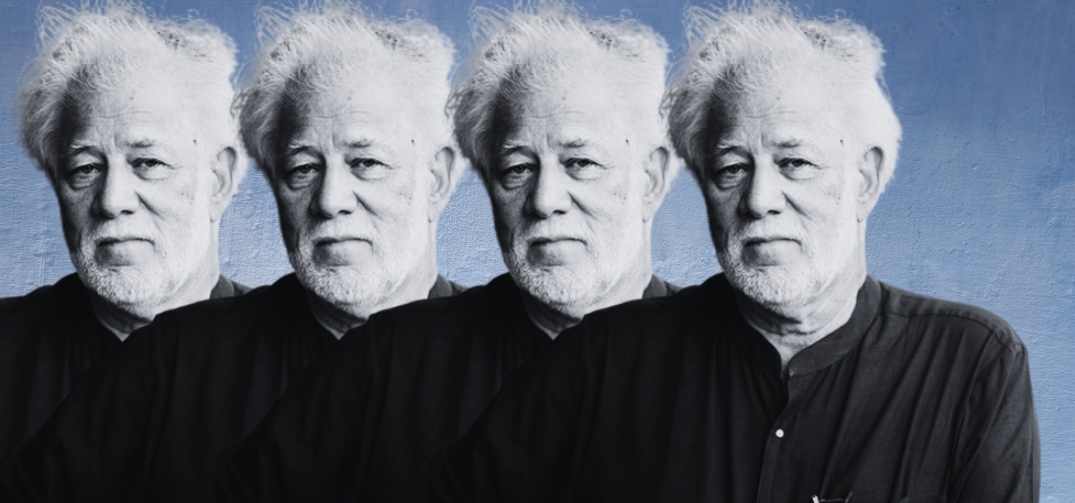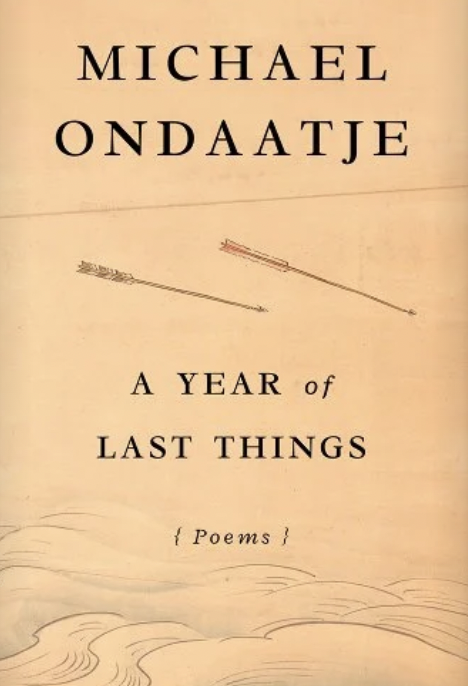
Telling Everything All at Once: A Conversation with Michael Ondaatje
Howard Norman Talks to Poet-Cum-Novelist About His First Collection in 25 Years
Recently I had a few conversations with Michael Ondaatje about his first collection of poetry in 25 years. With capacious introspection as well as intimate documentary recall, the poems and prose in A Year of Last Things, make for a symphonic treatise on memory itself. And the way in which it reconstitutes a whole life is full of fearless joy and equally fearless melancholy.
“The real question I had,” Michael said, “was could I write poems anymore? I began writing poems around age eighteen. But since then I would discover that many of the poets I came to admire were also writers of prose. Borges, for instance. I think too of Raymond Carver; do you know his poem, ‘The Offending Eel?’ It has a vastness like a great novel.”
Michael was born in Sri Lanka and attended a boarding school there, and then later was in another school in England. And then he came to Canada where he has lived ever since. Michael’s new collection gives us a wide range of life: Bulgarian churches, the California coast. Edo period Japan, Canadian rivers, and more. Poem after poem, as we move through Time and visit cities and landscapes, Basho’s term “wandering scholarship” seems relevant—and there is a tactile sense of immediacy, of the poet actually coming to knowledge of himself as he remembers various incidents and people in his life.
But, really, the unifying element is Ondaatje’s bittersweet, tender, and exacting introspection transmuted into verse. “I’m a huge believer in collage,” he said. “Placing disparate elements—fragments, quotes, anecdote, description—in proximity to each other, to build a specific atmosphere, which is very much like the atmosphere of memory.”
I brought up the opening stanza of Michael’s poem “1912”:
When that English novelist returned to poetry
he learned again the breaking line’s breath-like leap
into the missed life
And I asked if it was plausible to think of these lines as a kind of autobiographical coda to the collection as a whole. “Perhaps,” he said. “I didn’t want to miss out on a certain pensiveness, and a certain relationship with language, that only poetry can demand. Writing novels is like putting on a big theatrical production in a way, the interweaving of characters’ lives, many layers of dramatic narrative, all of that. But as I experience it, the writing of poetry, generally speaking, feels more like whispers than opera, more a sense of composing almost private soliloquies.”
The writing of poetry, generally speaking, feels more like whispers than opera.
In the decidedly vivid prose pieces “Into the Past,” and “Winchester House,” and in a longer poem like “Last Things,” there are leaps in time and subject matter, and I marvel at how, as these compositions unfold, both subtle and jarring shifts in a reader’s attention are required. Also, how digression and juxtaposition subvert all convenient notions of chronology. This is from the poem “Last Things”:
I had been alone for weeks when we met there,
below Dante. The three of us lounged in a pensione,
I was writing a book about a dying man.
Twenty years later, you were in a bed,
on Brunswick Avenue. And I kissed your feet,
Connie, one of my shy farewells.
It was your year of last things,
but you were luminous
within those final fires.
Earlier, alone in that city, I had dreamed
the statue falling brutal from its noble height,
and the poet crawling through plaster,
so near to where we met
in that piazza those years ago.
Now we gather our days together—
the countless meals, laughter and argument,
four of us at vicious canasta
(those small and essential feints),
margaritas, the dancing, and once
drunk in a car on some island or other,
all those small recalls of this and that
before our walk up a staircase into the dark.
I mentioned what W.H. Auden said, that a poem can provide a complete emotional biography without requiring the full chronology of a life. “That’s one way I read your poem about the brilliant WWI poet Edward Thomas,” I said.
“There Are Three Sounds in the Wood This Morning”
writes Edward Thomas.
Each day he walks the fields in his journal
Beside that narrow river, a one-word hill,
with a pause of space he leaves for any bird call
He is the sentinel of quiet places
where nothing supposedly happens,
as when he arrived at Adlestrop by train
and found nothing there, until he listened longer
“Still not a thrush—but many blackbirds,”
He would write, in his last letter,
near a battlefield in Arras in 1917,
those few days before he died
“Edward Thomas is an amazing poet,” Michael said. “I keep returning to him, along with someone like Zbigniew Herbert.”
Lastly, we spoke about the structure of A Year of Last Things. “I put a lot of thought into the eventual order of the poems,” Michael said. “So that in doing so, you can look back and see how they influence each other. And you see how the whole thing evolved. The order took a long time to figure out. In thinking about the way a collection can work, Kawabata’s wonderful novel, The Master of Go comes to mind. Something to do with how, yes, we read about the actual playing of Go. We learn the game itself. But Kawabata is so good at giving us the daily lives of the Go players, too—things like what they have for lunch.
It’s all about that quote from Marguerite Duras: ‘Writing isn’t just telling stories… It’s telling everything all at once.’”
______________________

A Year of Last Things by Michael Ondaatje, is available now from Knopf.
Howard Norman
Howard Norman has completed a memoir about friendship, The Wound Is The Place The Light Enters You. He was awarded The Lannan Award in Literature.



















